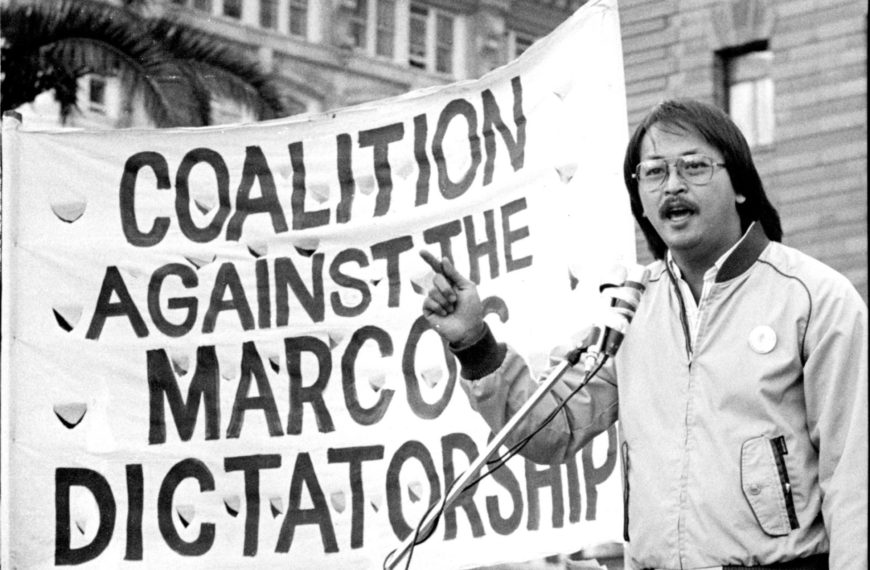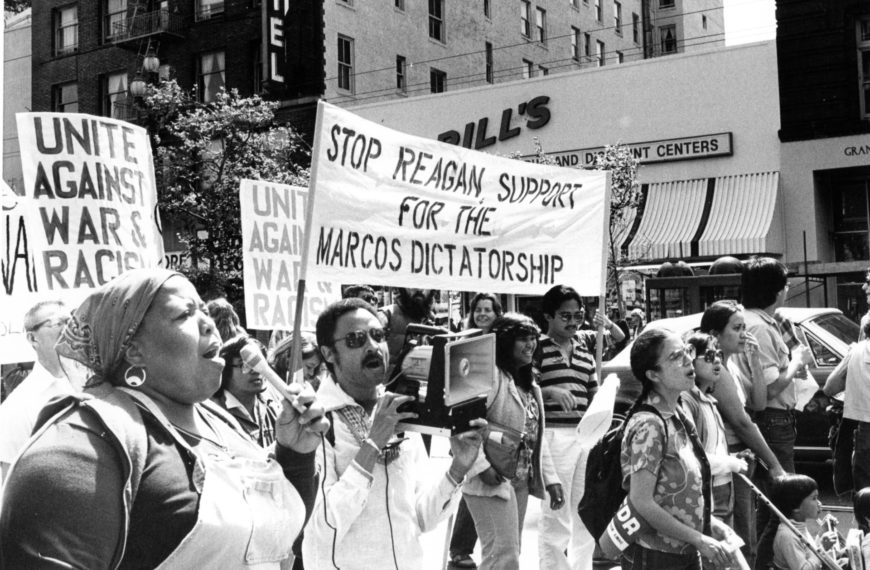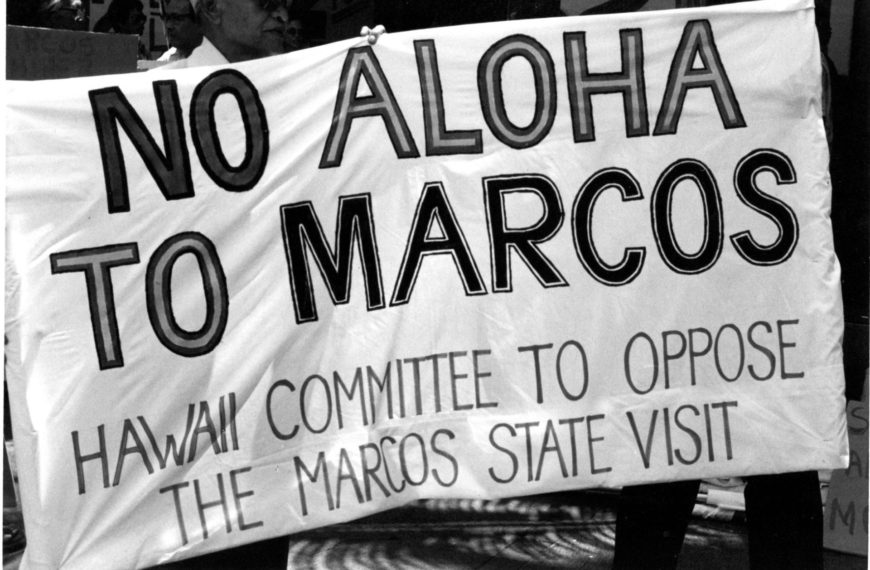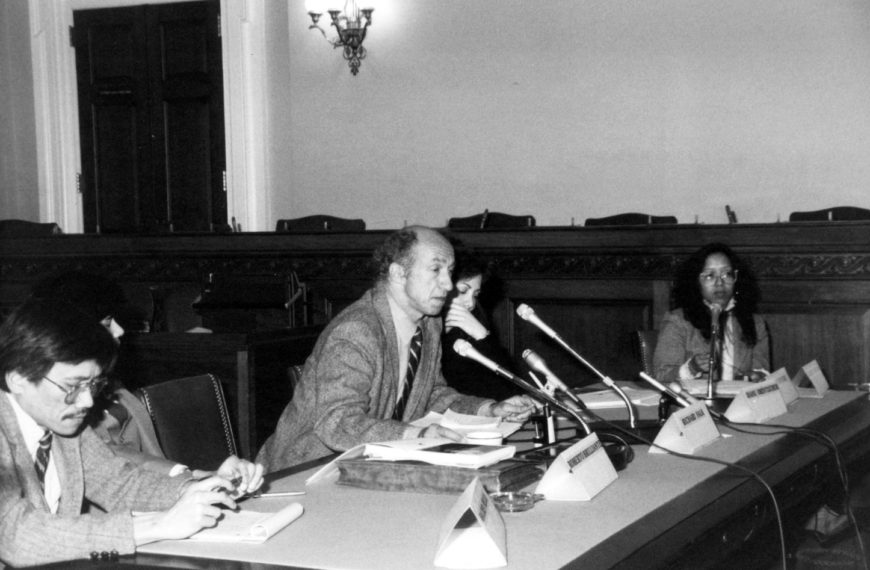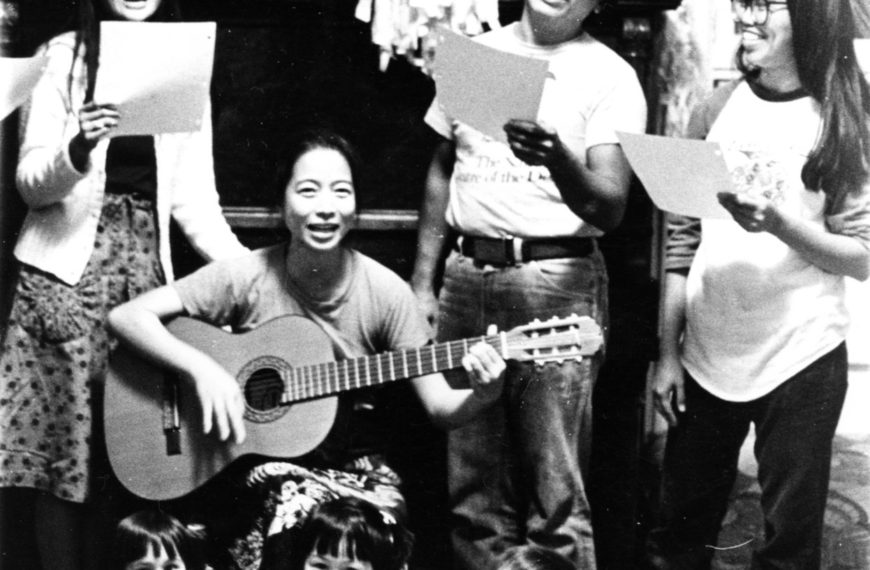KDP - Union of Democratic Filipinos
Katipunan ng mga Demokratikong Pilipino (KDP) - Legacy of Progressive US-based Filipinos in the 1970s & 80s
One the KDP’s immediate political successes was providing for the consistent and cumulative exposure of the Marcos dictatorship’s crimes and the self-serving support it received from the United States government. This meant organizing a well-oiled network of grassroots opposition that included non-KDP anti-Marcos individuals and organizations. A national conference in Chicago in December 1974 founded the Anti-Martial Law Coalition (later to become the Coalition Against the Marcos Dictatorship after the nominal lifting of martial law).
While the newly established Movement for a Free Philippines led by former Senator Raul Manglapus was invited into the coalition but refused to participate, the AMLC went ahead. For the rest of the decade it launched nationally coordinated campaigns, educating the community and non-Filipinos on the plight of

political prisoners, the U.S. motivations in propping up Marcos, the regime’s various maneuvers for legitimacy and its multifarious crimes, from corruption to human rights violations. These campaigns took the form of petition drives, timed and emergency demonstrations, Christmas caroling, speaking tours of secret delegations to the Philippines and deported or exiled critics of the regime, and fundraisers for refugees of anti-insurgency campaigns and the Philippine labor movement. In 1977, AMLC activists even occupied Philippine consulates in five cities in protest when the regime’s military tribunal sentenced to death by firing squad key opponents–Benigno Aquino, NPA chief Bernabe Buscayno and Lt. Victor Corpus, a defector to the NPA.
The coalition produced and disseminated books, pamphlets, photo exhibits, slideshows, posters and a monthly broadsheet called Taliba, which regularly featured exposes of the Marcos regime’s abuses. The KDP also helped in organizing the Friends of the Filipino People, and with the AMLC set up the Congress Education Task Force in Washington, DC. This agency gave Marcos a scare by successfully pushing for some aid cuts to the regime during the Carter administration. As a result of years of consistent work, the AMLC was the only organization capable of coordinating a quick nationwide campaign of protests during Marcos’ state visit to the United States in September 1982.
Amid a reinvigorated anti-Marcos grassroots movement, the KDP independently popularized the program of the National Democratic Front in the Philippines as well as the leading role played by the Communist Party. It also independently organized medical and financial aid drives for the underground. The KDP as a matter of policy responded to every major intrigue against the national democratic left fomented by the regime’s operatives as well as by exiled elite oppositionists.
